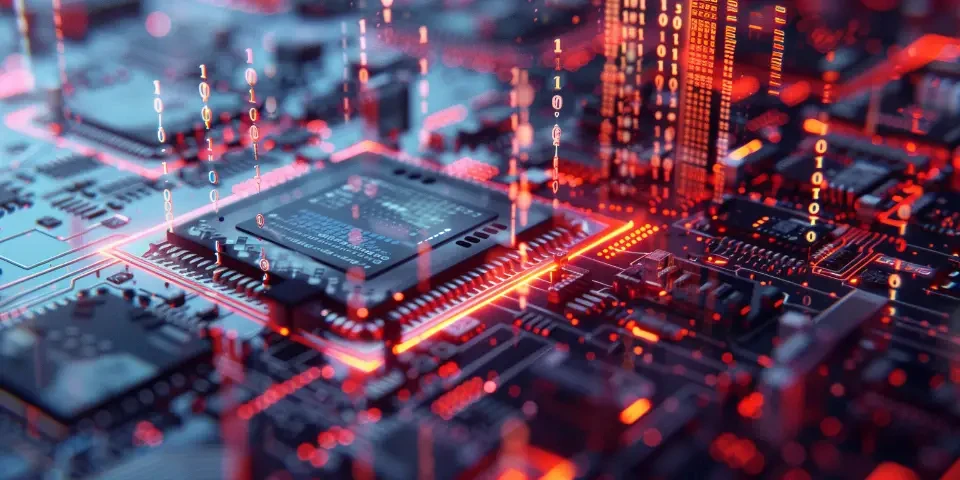AI in Entertainment Redefining the Way We Watch Movies, Listen to Music, and Have Fun
Artificial intelligence (AI) has made significant advancements in various industries, and the world of entertainment is no exception. From movies and music to gaming and live performances, AI is revolutionizing how we consume and interact with entertainment content. In this article, we will explore the ways in which AI is redefining our entertainment experiences and shaping the future of the industry.
1. Personalized Recommendations
AI-powered recommendation systems have become a game-changer in the entertainment industry. Platforms like Netflix and Spotify leverage AI algorithms to analyze user preferences and provide personalized recommendations. This enables users to discover new movies, TV shows, songs, and artists tailored to their taste, enhancing their overall entertainment experience.

2. Content Creation
AI technology has also ventured into content creation, with AI algorithms capable of generating music, writing scripts, and even producing artwork. For example, OpenAI's GPT-3 can generate realistic text based on a given prompt, making it a powerful tool for writers and content creators. While AI-generated content may not replace human creativity entirely, it presents exciting possibilities for collaboration and inspiration.
3. Enhanced Visual Effects
AI has revolutionized visual effects in movies and TV shows. Deep learning algorithms can create incredibly realistic CGI (Computer-generated imagery), allowing for immersive and visually stunning experiences. Additionally, AI can automate processes such as object removal, facial recognition, and background replacement, saving both time and resources in post-production.
4. Virtual Reality (VR) and Augmented Reality (AR)
The combination of AI with virtual and augmented reality technologies has opened up new possibilities for immersive entertainment experiences. AI algorithms can track user movements, interpret gestures, and provide real-time feedback, allowing for more interactive VR and AR experiences. This convergence of technologies enhances gaming, live performances, and virtual tours.
5. Chatbots and Virtual Assistants
AI-powered chatbots and virtual assistants are transforming the way we interact with entertainment platforms. These AI systems can provide personalized recommendations, answer queries, and even engage in casual conversations, enhancing customer support and user experience. Amazon's Alexa and Apple's Siri are prime examples of virtual assistants that have become integral parts of our daily lives.
6. Real-time Translations
AI has significantly improved language translations, making it easier for people to consume entertainment content from different cultures. AI-powered language translation tools can instantly convert subtitles, dubbing, and voice-overs, breaking down language barriers and broadening access to diverse entertainment options.
7. Predictive Analytics
AI's ability to analyze vast amounts of data has enabled predictive analytics in the entertainment industry. Studios and production companies now use AI algorithms to forecast audience preferences, box office success, and market trends. This helps in making informed decisions about content creation, marketing strategies, and distribution methods.
8. Live Event Enhancements
AI technologies have enhanced live events such as concerts and sports broadcasts. AI algorithms can analyze real-time data, track player movements, and generate statistics, providing valuable insights to both fans and commentators. This enriches the viewing experience and offers a new level of engagement with live events.
9. Emotion Recognition
AI algorithms can now analyze facial expressions, tone of voice, and other signals to accurately detect and interpret emotions. This capability opens up possibilities for emotion-driven entertainment experiences, such as tailored movie recommendations based on mood or interactive games that respond to the player's emotional state.
10. Data Security and Copyright Protection
AI plays a vital role in protecting intellectual property rights and ensuring data security in the entertainment industry. AI algorithms can identify copyright infringement and flag unauthorized distribution of content, helping content creators and distributors safeguard their work and revenues.
Frequently Asked Questions:
Q1: Can AI completely replace human creativity in the entertainment industry?
A1: While AI can assist and enhance creative processes, it is unlikely to replace human creativity entirely. Human emotions, experiences, and imaginative capabilities continue to be essential for producing unique and groundbreaking content.
Q2: Is AI capable of generating music that matches the creativity of human composers?
A2: AI algorithms can generate music that is highly complex and technically impressive. However, the emotional depth and subjective aspects of music composition are still better achieved by human composers.
Q3: How does AI impact the job market in the entertainment industry?
A3: AI may automate certain tasks previously performed by humans, leading to job displacement. However, it also creates new job opportunities in AI development, content curation, and personalized experience design.
References:
1. OpenAI: https://www.openai.com/gpt-3/
2. Netflix: https://www.netflix.com/
3. Spotify: https://www.spotify.com/
Explore your companion in WeMate